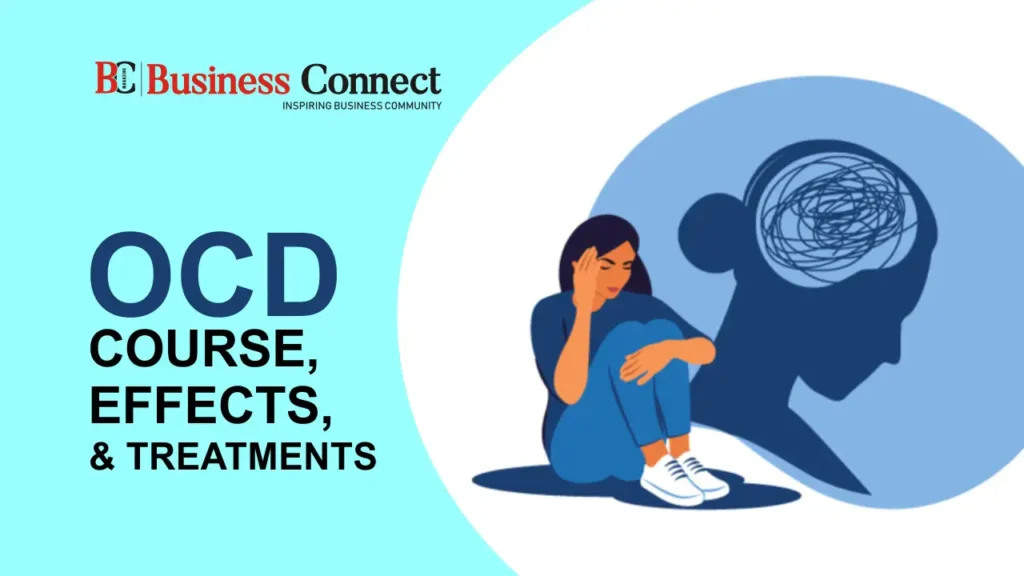OCD – Course, Effects, and Treatments
Obsessive-compulsive disorder, more commonly known as OCD, is a mental disorder characterised by recurrent, intrusive thoughts (obsessions) and repetitive behaviours or rituals (compulsions), which may cause significant distress or impairment. In this article, we will discuss the course of OCD, its effects on sufferers, and the best treatments available.
What is OCD?
Obsessive-compulsive disorder (OCD) is an anxiety disorder that is characterised by recurrent, intrusive thoughts (obsessions) and repeated actions (compulsions) to try to alleviate the anxiety.
The symptoms of OCD can vary from person to person, but they generally include:
– recurrent thoughts or images that are disturbing or embarrassing
– a strong urge to clean, check, or repeat a certain action
– feeling like something is wrong or dangerous
OCD usually starts in early adulthood, but it can also develop at any age.
There is no one cause for OCD, but it is believed to be linked to a combination of genetic and environmental factors.
OCD can be extremely debilitating and difficult to treat, but there are many available treatments.
If you think you may have OCD, please seek help from your doctor.
Types of OCD
There are three main types of OCD: obsessional, compulsive, and mixed. Obsessional OCD is characterised by recurrent thoughts or images that trigger an intense fear or anxiety. Compulsions are repetitive behaviours or rituals that the person feels compelled to do in order to reduce the fear or anxiety. Mixed OCD includes both obsessional and compulsive symptoms.
Course of OCD
The National Institute of Mental Health (NIMH) defines the course of OCD as follows: About one-third of people with OCD experience a partial course (lasting at least six months but no more than a year), in which symptoms are reduced but return after periods of remission. About two-thirds of people with OCD experience a complete course (lasting more than a year), in which symptoms persist throughout the entire period of illness.
A study published in the journal Biological Psychiatry in 2009 looked at the long-term course of OCD in adults and found that about two-thirds experience a total course, while about one-third have a partial course.
The study used data from the National Comorbidity Survey Replication, an epidemiological study that followed up participants from 1997 to 2001. The study found that, overall, about 73% of adults with OCD experienced a total course, 23% had a partial course.
And another course in OCD is Episodic course in OCD is a pattern of symptoms that wax and wane over time. A person with an episodic course may experience one or more episodes of OCD in a given month, but may not have any episodes for several months.
Effects of OCD on the Individual
Obsessive-compulsive disorder (OCD) is a mental health condition that can affect anyone at any time. The following are five key effects of OCD on the individual.
- The compulsion to repeat certain behaviours can be extremely difficult and time-consuming to stop. For example, a person with OCD may feel compelled to wash their hands multiple times a day or to check the locks on their doors multiple times a day.
- OCD can cause severe anxiety and stress in its sufferers. This can lead to problems with concentration, sleep, and overall productivity. In extreme cases, OCD can even lead to depression or other mental health conditions.
- OCD can have a negative impact on the quality of life of its sufferers. For example, people with OCD may avoid social situations for fear of being contaminated or exposed to germs.
- OCD can cause significant financial costs for its sufferers, as they may need to spend large amounts of money on medication and therapy. In some cases, the condition may even require hospitalisation or surgery.
Treatment and Prevention of OCD
Treatment for OCD typically involves psychotherapy and medication. Psychotherapy focuses on addressing the underlying causes of OCD and helping the sufferer learn how to cope better with the thoughts and images that trigger their symptoms. Medications may be necessary in cases where symptoms are severe or prevent the person from functioning normally.
There is no one-size-fits-all answer to treating OCD, as the best approach depends on the individual’s symptoms and history. However, some common treatments include cognitive-behavioural therapy (CBT), medication, and exposure and response prevention (ERP). CBT focuses on teaching people how to change their negative thoughts into more positive ones and then using that new knowledge to change their behaviour. Medications like selective serotonin reuptake inhibitors (SSRIs) help to relieve symptoms by increasing serotonin levels in the brain. ERP involves gradually exposing someone with OCD to situations or activities that cause mild anxiety in order to desensitise them to those situations.
If you think you may have OCD, please consult your doctor. There is no shame in seeking help, and there is a good chance that treatment will solve the issue.
Conclusion
OCD is a mental illness that causes people to experience repeated, intrusive thoughts and/or behaviours that cause significant distress or impairment. If left untreated, OCD can significantly impair an individual’s ability to lead a normal life.
Fortunately, there are treatments available that can help break the cycle of obsessive thinking and behaviour. If you or someone you know is struggling with OCD, please seek out professional help as soon as possible.
Add Business Connect magazine to your Google News feed
Must Read:



